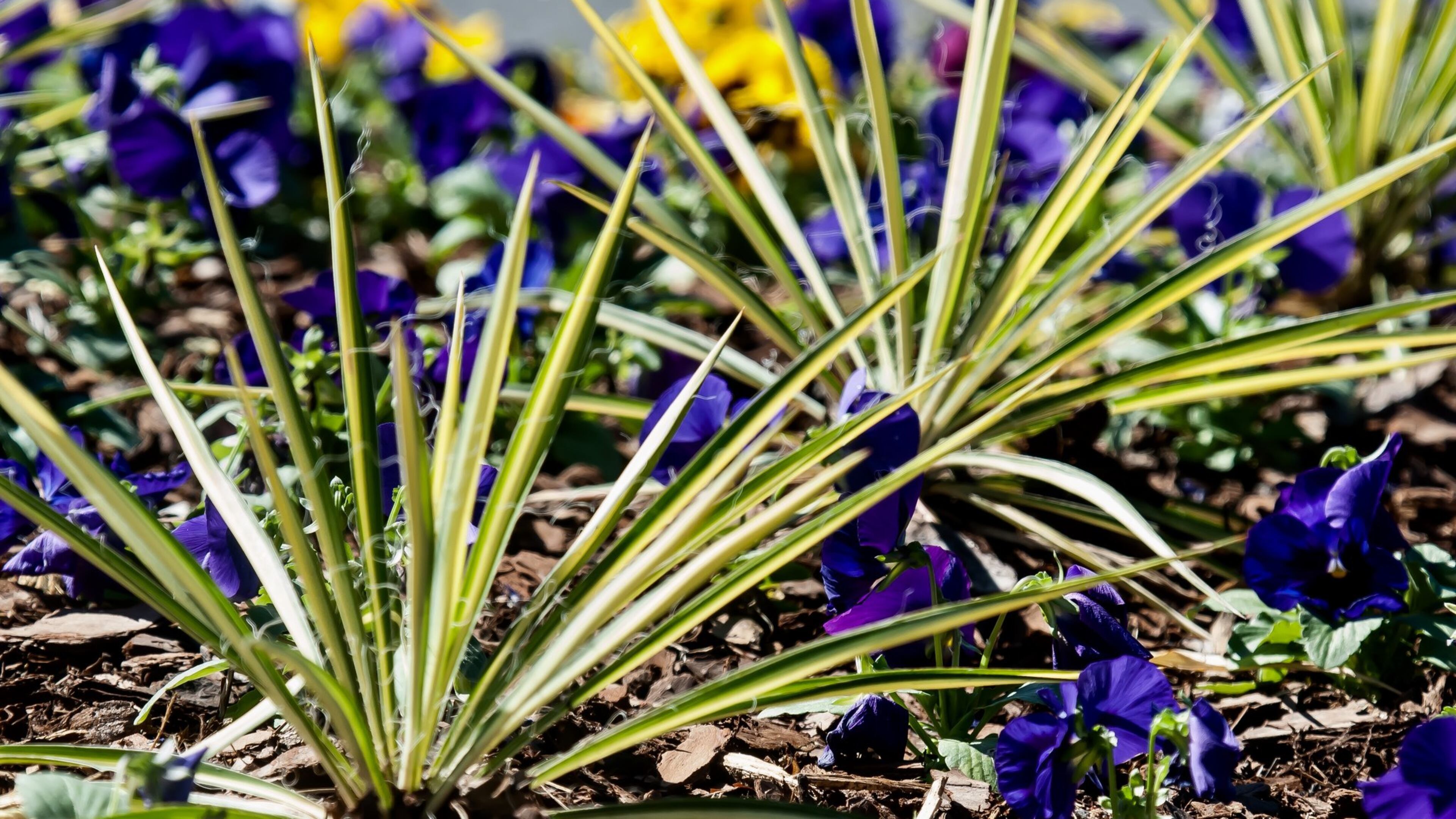Native yuccas create landscape excitement

Look out America, Color Guard and Golden Sword are changing landscapes in dramatic fashion. Believe it or not, these two selections of our native Yucca filamentosa are crushing the cookie cutter, lookalike landscapes, no matter the season.
Now when I say our native, I’m not talking the desert southwest but the east from Texas to New York. That’s correct these evergreen yuccas are cold hardy from zones 4 through 10. Color Guard and Golden Sword are exciting additions to the flower bed and will entice visitors to bring out their cameras.
Both varieties will reach 24-inches tall and perhaps a little wider showing off their green and gold variegation. Why grow a garden of yucca, cactus, and agave? The palette of colors and partnerships is only limited by your imagination.
They pair nicely with begonias and red spider lilies. Whatever the season, or the possible partnerships, all will look dazzling beyond your dreams when grown with these showy variegated yuccas.
Right now, in Columbus, Ga., professional landscapers are using them as pansy pals, which look stunning and the pansies haven’t even kicked into gear so to speak. But it’s not just pansies another has them with Citrona and Black Pearl heuchera as well as Juncus and pansies.
Typically, everyone thinks of cabbage, kale, mustard, and chard as foliage plants to be pansy partners which is certainly appropriate. They are treated as annuals to be replanted every year. With the Color Guard or Golden Sword, however, you will be growing one that is essentially an evergreen perennial.
In addition to the excitement it creates by being an unexpected plant, it also stands out by virtue of rising above the horizontal plane. If you are unfamiliar with this term, think of a bed of pansies, marigolds or even petunias. You could conceivably draw an imaginary line across the top of the bed. When you rise above this with spikey flowers or in the case of the yucca, sword-like foliage, then there is a tremendous amount of added interest.
As you might expect from a native, it is an extremely drought-tolerant plant that requires good drainage. If your soil is clay or muck that holds water, then, by-all-means, improve your soil and plant on raised beds. They will produce offshoots which can be removed and planted elsewhere in the garden.
I’m raving about the foliage and architectural aspects of these plants, but each spring-to-early summer, there’s another reason to get excited. These spikey plants produce creamy white, lightly fragrant blooms borne on 6-foot-tall stalks. These blooms are a delectable source of nectar for hummingbirds.
It is a rare week that goes by that someone doesn’t ask me about deer-resistant plants. If you find yourself the proud owner of a roving herd, then rejoice; the Color Guard and Golden Sword yuccas will not become Bambi’s salad.
Hairy Soapwort and Adam’s Needle are common names associated with these yuccas. One look at the bright gold and green variegation of these tough-as-nails plants, however, will steal your heart in a ‘New York Minute’, and that is pretty darn fast.
———
Norman Winter, horticulturist, garden speaker and author of, “Tough-as-Nails Flowers for the South” and “Captivating Combinations: Color and Style in the Garden.” Follow him on Facebook @NormanWinterTheGardenGuy.

